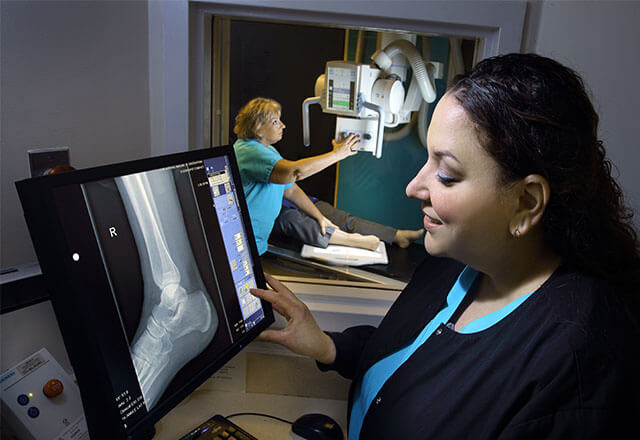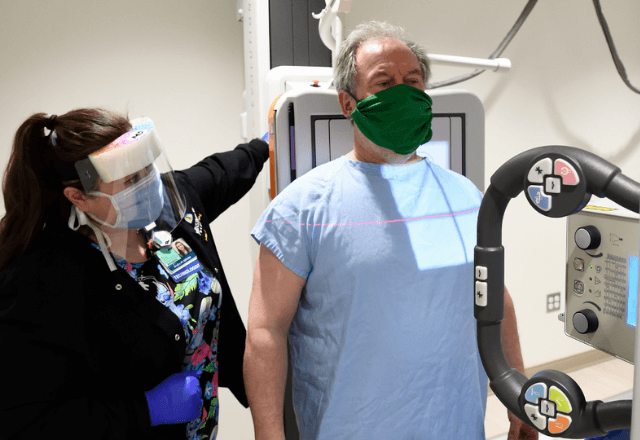Exams We Offer: X-ray

An X-ray machine uses a small dose of radiation to produce images of structures inside the body. The X-rays pass through the area of the body being examined and are translated into images captured on the other side of the body.
Our team at Johns Hopkins Medical Imaging provides compassionate patient care and high-quality imaging in convenient suburban locations. Using the most advanced technology and equipment, our highly trained radiologists and imaging technologists tailor each exam to your specific needs and diagnosis.
Request An Appointment Request An Appointment
Schedule by phone
New and existing patients: 443-997-7237

How do I prepare for an X-ray?
-
Notify the technologist if you are pregnant or think you may be pregnant. No other specific exam preparation is typically required.
-
- You will be asked to remove any clothing or jewelry that may interfere with the exam. If you are asked to remove clothing, you will be given a gown to wear.
- The area of your body being examined will determine if you sit, stand or lie down on a table.
- Areas of the body not being examined may be covered with a lead apron to avoid exposure to the X-rays.
-
There is typically no special type of care following an X-ray. However, your health care provider may give you additional instructions depending on your specific health condition.
Why Choose Johns Hopkins Medical Imaging?
Johns Hopkins Medical Imaging brings the world-class expertise of Johns Hopkins to your community. Why does expertise matter? Because you matter. Here is how we do it:
Physician Experts
We set the standard for other radiologists around the world.

#1 Radiology Department
We are the top-ranked radiology department by U.S. News and World Report.
State-of-the-Art Technology
Doing the right study with high quality increases accuracy.

Your Safety Is Always Our Priority
We take comprehensive safety measures to minimize any possible risk.

Specialty Technologists
Our dedicated staff work in their exclusive fields and are trained to the same high standards.

Patient Care
We’re here to make you feel safe and comfortable during your appointment.



